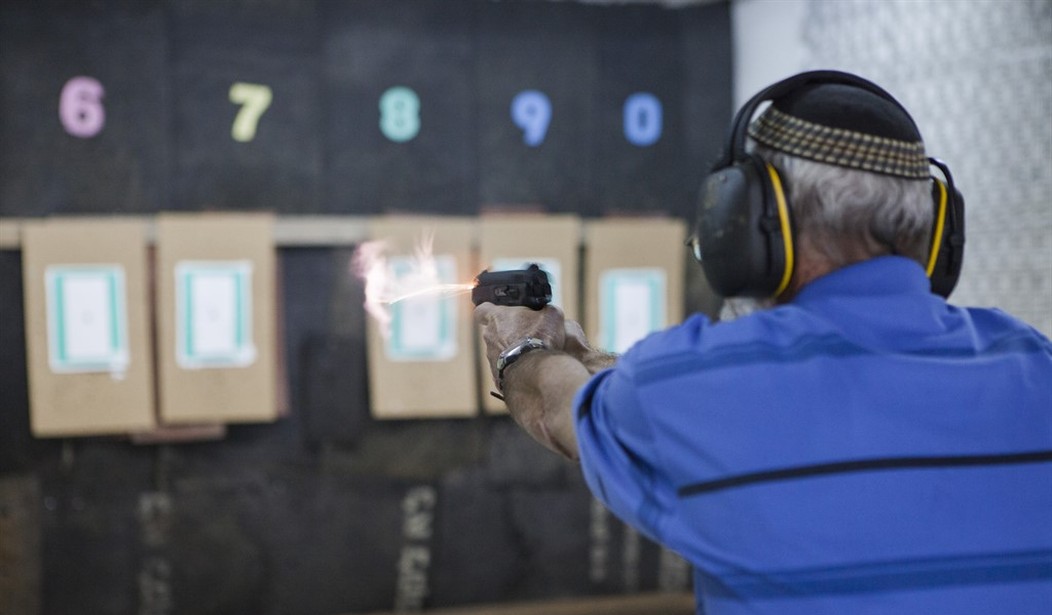The blows to New York’s post-Bruen gun laws keep coming, with the latest lawsuit filed by the president of a Brooklyn synagogue as well as a worshipper (and concealed carry licensee) at another synagogue in Rockland County. The pair’s attorney Amer Benno points out in the initial that at a time of increasing attacks on synagogues and Jewish communities in the state, Gov. Kathy Hochul and New York Democrats have perversely made it impossible for congregations to protect themselves unless they can afford to hire private security. Under the new laws rushed through the state legislature in the wake of the Bruen decision, concealed carry is banned in all houses of worship, and the religious institutions themselves have no say in the matter; something Benno argues is unconstitutional and a tragedy waiting to happen.
The two plaintiffs in the case are both licensed to carry a concealed firearm, but have been unable to do so in their synagogues since the new concealed carry rules took effect on September 1st. For Stephen Goldstein, president of the Congregation Bnei Matisyahu, the new law could mean and end to the congregation itself.
For several years, Goldstein has been licensed by the City of New York to carry a concealed firearm on Bnei Matisyahu’s premises.
Since originally obtaining that permit, Goldstein has always carried a concealed firearm within the premises of Bnei Matisyahu’s synagogue. He did this because of the high incidence of anti-Jewish hate crime throughout the City of New York, including within the Midwood section of Brooklyn, and throughout the state and country.
Goldstein is apprehensive that he, his family and his congregation will be targeted for acts of violence because of their Jewish faith, and therefore he desired and continues to desire to carry a handgun while at his synagogue for the defense of himself, his family and his congregation.
Bnei Matisyahu’s synagogue is conspicuously marked with a plaque that identifies it as such. Further, Bnei Matisyahu’s members and congregants wear attire, such as the kippah (head coverings), tzitzit (fringes) and the tallit (prayer shawl), which conspicuously identifies them as members of the Jewish faith.
For as long as Goldstein has carried a concealed firearm at Bnei Matisyahu, the members and congregants of Bnei Matisyahu have been aware that he was doing so and have approved of him doing so. Those members expressed to Goldstein that they were and are fearful that Bnei Matisyahu will be the target of anti-Jewish hate, and they are apprehensive that without Goldstein’s armed protection at the synagogue, they will be the victims of violent physical attacks. Goldstein shares that fear. Those members told Goldstein that if he did not carry the concealed handgun at Bnei Matisyahu, they would be too fearful to attend religious services, they would stop being members of Bnei Matisyahu, and they would end their financial support to the congregation.
Since the new rules have taken effect, Goldstein (and presumably other members of Bnei Matisyahu as well) has limited his attendance at synagogue because he no longer feels safe there. Unsurprisingly, he and other worshippers would rather know that they can protect themselves in case of an attack rather than relying on a gun-free zone keeping them safe.
The news has also been replete in recent years with accounts of violent attacks on other places of worship, including mosques and churches. To cite but one example, in December of 2019, a man entered the West Freeway Church of Christ in Fort Worth, Texas, pulled a shotgun out from beneath his coat, and aimed it at people inside the church. He was able to discharge a single shot from the gun before a lawfully armed member of the church returned fire, preventing a mass casualty event.
Were a similar event to take place in New York State, the church members would have been rendered defenseless by Kathy Hochul’s CCIA, and nothing would have stopped the gunman from committing mass murder. In this way, the law perversely renders “sensitive locations” more sensitive: these are locations where, would-be killers may fairly assume, people have been made defenseless.
You know who’s going to abide by the state’s prohibitions on carrying in houses of worship? Law-abiding citizens like Stephen Goldstein. You know who’s not going to follow the law? The deranged individual who decides that a synagogue full of unarmed victims makes for an excellent target.
This new lawsuit seeks an injunction barring enforcement of this particular gun-free zone, but a federal judge in Syracuse is also holding a hearing today on a broader request to restrain the state and its political subdivisions from enforcing many more aspects of the oh-so-ironically named Concealed Carry Improvement Act, which could also restore Mr. Goldstein’s right to carry in the synagogue where he worships. Gun owners are not backing down from this fight, and we won’t stop until our Second Amendment rights are secure in even the most hostile of places like Kathy Hochul’s New York.









